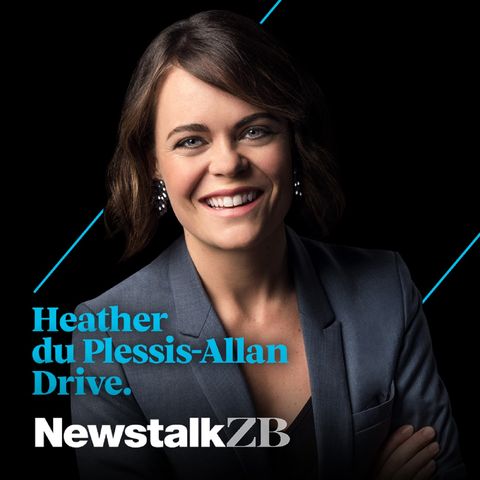Vote 2020: NZME End of Life Choice referendum debate

Sign up for free
Listen to this episode and many more. Enjoy the best podcasts on Spreaker!
Download and listen anywhere
Download your favorite episodes and enjoy them, wherever you are! Sign up or log in now to access offline listening.
Description
An expert panel is tonight debating whether New Zealanders should be able to request help to end their lives. Hosted by Newstalk ZB's Heather du Plessis-Allan, the panel features: Wellington...
show moreHosted by Newstalk ZB's Heather du Plessis-Allan, the panel features:
Wellington GP Dr Mary English
Professor Rod MacLeod of Hospice NZ
Stuart Armstrong, a terminal cancer patient
Dr John Bonning, an emergency medicine specialist from Waikato Hospital.
It comes ahead of the End of Life Choice referendum on October 17, which will determine whether assisted dying is legalised in New Zealand.
The panel first explained their positions on the referendum.
Armstrong said he wanted to have the choice to die on his own terms "when and where it suits me".
Rather than dying a "gnarly" death, he wanted to avoid it for his own sake and his family's.
He wanted to go out with a party by a bonfire rather than curled up on a hospital bed, he said.
English recalled a story from a fellow doctor, who was told by a patient that she wanted to die.
She said the patient's mother later revealed her daughter was in an abusive relationship and was being coerced into dying.
There were many families in a similar position, she said.
Asked what she would say to someone who would like to die, English said that needed to be balanced against the rights of vulnerable people like the elderly and disabled.
When it was pointed out that they were not eligible for euthanasia under the law, English said there was "no bright line".
Bonning said he was "pro-choice" and was focused on easing suffering. He respected the choices of euthanasia opponents, but took issue with those who wanted to control the lives of others, he said.
He wanted to dispel myths about euthanasia, including the false claim that suicides increased in places where euthanasia was legalised.
He added that assisted dying had worked "wonderfully" in Victoria and other places.
"There are 45 requirements in this [New Zealand] legislation. It is going to be the most rigorous in the world."
Macleod said he had practised palliative care for more than 30 years and he was yet to meet someone who he thought was better off dead.
How will it work?
The next segment of the debate focused on how the legislation would work.
Macleod said a person could take the oral dose of medicine themselves, or have it administered by a doctor.
It was difficult to know how long the drugs would take to work, he said.
"There is an assumption that euthanasia is like flicking a switch. But occasionally it takes longer, and there are reports from Oregon that it takes longer.
"It's not as simple as giving something a jab and they die."
Bonning said that in Victoria, most people took the lethal dose themselves.
There were many beautiful anecdotes from the Australian state, with people dying the way they want to. He recalled stories of people having a glass of port before saying farewell to their family.
He said there was no evidence of a slippery slope or of patients being coerced.
Improving palliative care in New Zealand would not prevent all suffering, he said. Palliative care needed to work hand-in-hand with an end of life choice system.
There was heated debate over whether the law included enough safeguards.
English said the legislation would allow an 18 year-old to die.
Armstrong said that if they were terminally ill and in unbearable suffering, that was acceptable.
They could vote, enlist in the army, and should be able to decide about their own death, he said.
English disagreed, saying that was incredibly hard on their families.
Macleod said under the proposed New Zealand law, patients would not have to talk to their family about assisted death.
"There are no witnesses to this act."
Bonning said it was a "unicorn" argument because so few people of that age requested euthanasia.
"There is not going to be a truckload of 18 year-olds [getting euthanasia]," he said.
The End of Life Choice Act would allow a person with a terminal illness to request assisted dying.
To be eligible, they would need approval from two doct...
Information
| Author | NZME |
| Organization | NZME |
| Website | - |
| Tags |
-
|
Copyright 2024 - Spreaker Inc. an iHeartMedia Company
